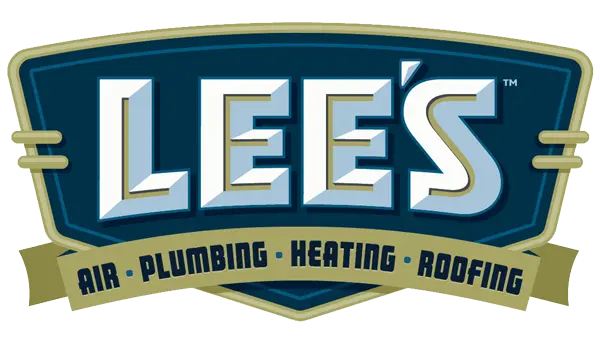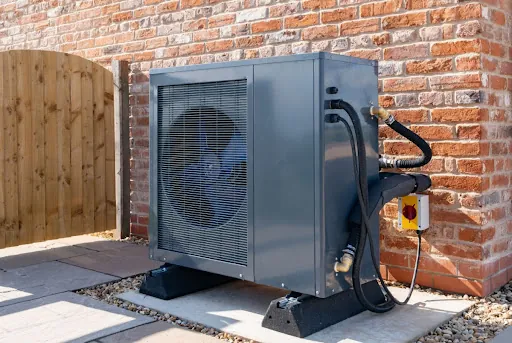When it comes to keeping your California home cozy and warm, the debate between a heat pump or furnace is a common one. Both heating systems have their merits and downsides, and choosing the right one can significantly impact your comfort and energy bills. In this blog, we’ll delve into the furnace vs. heat pump debate, helping you understand which option is more suitable for your home.
The Basics of Heat Pumps and Furnaces
Before comparing these two prevalent heating systems, it’s essential for homeowners to grasp the fundamental workings of both furnaces and heat pumps. This knowledge will ensure that you make an informed decision and find the most suitable system for your home.
Heat Pump System
A heat pump works by transferring heat from the outside air into your home. Even when it’s cold outside, air-source heat pumps can extract heat energy and use it to warm your home. Heat pump technology is not only used for heating but can also double as an air conditioner in warmer months.
Furnace
A furnace, on the other hand, generates heat by burning fuel (natural gas, oil, or propane) or using electricity. Gas furnaces are more common in areas where natural gas lines are readily available, while electric furnaces are an alternative in areas without gas lines.
Efficiency and Climate Suitability
Heat pumps are generally more energy efficient compared to furnaces, especially air-source heat pumps. They transfer heat rather than generate heat, consuming significantly less energy. This efficiency can be a major advantage in moderate climates like California.
Performance in Cold Climates
While heat pumps are efficient, their performance can diminish in extremely cold climates. If the outdoor temperature drops too low, heat pumps may struggle to extract enough heat from the air. Furnaces, particularly gas furnaces, can produce more heat and are reliable even in colder climates.
The Cost Factor: Upfront and Long-Term Expenses
The initial cost for a heat pump or furnace can vary. Gas furnaces might require gas lines and other infrastructure, which can add to the upfront cost. Electric furnaces, while cheaper to install than gas furnaces, can lead to higher energy bills.
Heat pumps might have a higher upfront cost than furnaces but can offer savings in energy costs over time. Additionally, since a heat pump can work as a heating and cooling system, you only need to install one unit instead of two. This can help you save money on installation costs in the long run.
Maintenance and Operating Costs
Both a heat pump and furnace require regular maintenance, but the complexity can differ. Gas furnaces involve more components like gas lines and heat exchangers, potentially increasing maintenance requirements. Heat pumps, while having fewer maintenance demands, might need more frequent servicing due to their dual function as both heating and cooling systems.
Environment and Safety
Heat pumps are often considered more environmentally friendly since they use less energy and reduce carbon emissions. Gas furnaces burn fuel, which can contribute to a larger carbon footprint.
Safety Concerns
Furnaces, especially gas ones, pose risks like carbon monoxide leaks if not well maintained. Electric heat pumps eliminate such risks, making them a safer option overall.
Ease of Installation
When it comes to installing a heating system in California homes, the debate of heat pump vs. furnace often centers on ease of installation. Installing a furnace, especially a gas furnace, can be a complex process. It requires gas lines, proper ventilation, and adherence to safety standards to prevent issues like carbon monoxide leakage. On the other hand, an electric furnace might have fewer installation complexities but still needs proper handling for efficiency and safety.
Comparatively, installing a heat pump system can be less complex, particularly if it’s an air-source heat pump. These systems do not require gas lines and often have fewer safety concerns. However, the installation still needs professional handling, especially for integrating with existing HVAC systems. Heat pump technology has evolved to be more compact and adaptable, making it a more flexible option for homes with space limitations.
Professional Assistance and Considerations
Regardless of whether you choose a heat pump or furnace, professional installation is key. A well-installed system not only ensures efficiency but also longevity. Lee’s Air, Plumbing & Heating offers expert installation services for both systems. With our experienced team, you can rest assured that your heating system, be it a heat pump or a furnace, will be installed with precision and care. Whether you’re interested in a new heat pump or a furnace replacement in Sacramento, CA, we can help.
Overall Longevity
The longevity of a heating system is a key factor in the heat pump vs. furnace debate. Generally, a well-maintained furnace can last between 15 to 20 years. Gas furnaces may have a shorter lifespan due to the wear and tear of combustion components. Electric furnaces, while having fewer moving parts, still require regular check-ups to ensure a long life.
Heat pump systems, when properly maintained, can have a similar lifespan. However, since they are used throughout the year for both heating and cooling, their wear and tear might be more significant, potentially leading to a slightly reduced lifespan compared to furnaces. Regular maintenance from a professional company like Lee’s can significantly extend the life of a heat pump.
Space Requirements
The choice between a heat pump or furnace also depends on the space available in your home. Traditional gas furnaces require more space due to their need for a heat exchanger, air handler, and ductwork. They are often installed in basements or utility rooms. In contrast, electric furnaces, though smaller, still need dedicated space for safe operation.
Heat pumps, particularly air source heat pumps, are known for their space efficiency. The indoor unit of a heat pump is typically smaller and can be integrated with existing air conditioners or heating and cooling systems. This dual-functionality of heat pumps — both heating and cooling — makes them a space-saving solution. Moreover, the outdoor unit of a heat pump, responsible for drawing heat from the outside air, is compact and can be placed discreetly outside the home.
Indoor Air Quality
Indoor air quality is a crucial factor in the heat pump vs. furnace debate. Furnaces, especially gas furnaces, burn fuel to generate heat. This process can potentially affect indoor air quality and requires well-maintained ventilation systems to ensure safety and comfort. Electric furnaces do not burn fuel, thus reducing the risk of pollutants like carbon monoxide, but they still circulate air through ducts, which can spread dust and allergens if not well maintained.
Heat pumps, in contrast, do not burn fuel to create heat, thus reducing the risk of air quality issues related to combustion. Their operation involves transferring heat, which can lead to better indoor air quality. Moreover, heat pump systems often come with advanced filtration systems that can further enhance indoor air quality, making them an attractive option for homes concerned with maintaining a healthy living environment.
Making the Right Choice for Your Home
As a homeowner, ensuring the optimal comfort of your residence is of paramount importance. Therefore, it is crucial to select the most suitable heating system to meet your specific requirements. If you find yourself uncertain about where to start, we have compiled a list of essential factors that you should consider.
Local Climate
In California, with its moderate temperatures, heat pumps are often a more efficient and cost-effective choice. However, in areas of California that experience colder temperatures, a furnace might be more reliable.
Existing System
If your home already has a functioning HVAC system, retrofitting it with a heat pump or a new furnace can be influenced by the existing setup. For instance, homes with established gas lines might find it easier to opt for a gas furnace.
Personal Preferences
Your preference for consistent warmth, environmental impact, and long-term cost savings should guide your decision. A heat pump offers a greener, more versatile solution, while a furnace provides reliable warmth in colder conditions.
Finding Your Ideal Heating Solution
Choosing between a heat pump or furnace is not just about the heating system; it’s about your comfort, budget, and environmental impact. Whether you’re leaning towards the energy efficiency of a heat pump system or the robust warmth of a furnace, Lee’s Air, Plumbing & Heating is here to help.
Schedule Your Heating System Installation Today!
Ready to make your home warm and comfortable with the right heating solution? Contact Lee’s Air, Plumbing & Heating for expert advice and installation services. Whether you’re interested in a furnace or heat pump installation in Sacramento, our team of professionals is equipped to provide you with the best heating solutions tailored to your needs.
Contact us today to learn more, or schedule your installation today! We proudly serve the residents of Sacramento, CA, and the surrounding areas.



